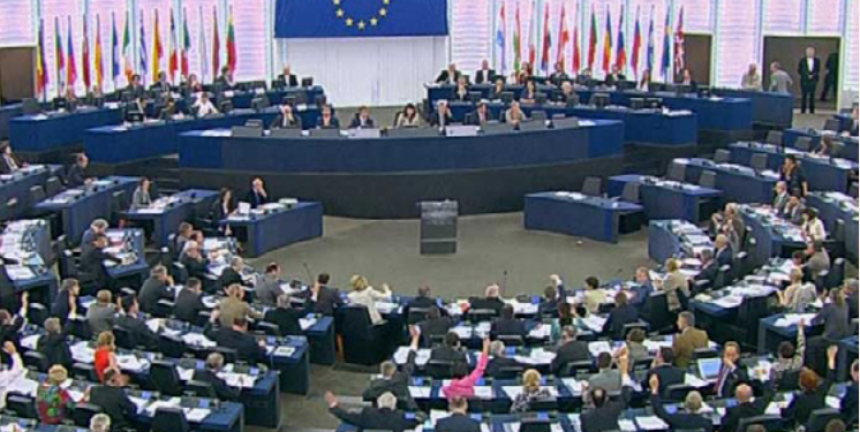
Eight questions and answers about the TTIP, the disturbing free trade agreement between the US and Europe *
Redacción

Marc Botenga. Periodista
The TTIP, a free trade agreement that is currently being negotiated between the European Union and the United States, will have serious consequences (if it happens) on our quality of life and democracy. It is not surprising in this regard, that over a million and a half people in Belgium have signed a petition demanding that TTIP negotiations stop.
The TTIP, a free trade agreement that is currently being negotiated between the European Union and the United States, will have serious consequences (if it happens) on our quality of life and democracy. It is not surprising in this regard, that over a million and a half people in Belgium have signed a petition demanding that TTIP negotiations stop.
1 What is it?
Officially, the free trade agreement serves to facilitate trade between countries. In this type of agreement, a country agrees to adapt its domestic laws and regulations to facilitate trade with one or more countries. For example, it may deal with the abolition of tariffs or impose levies on imports to facilitate the export of goods.
It may also include other provisions, such as legislation. In the European Union (EU), products must meet certain standards of quality and safety. If these rules are stricter than those in the US, American producers can find it difficult to export their goods to Europe.
For chickens, chlorine can be a good example. In the US after being slaughtered, chickens can be washed in a chemical bath containing four substances containing chlorine. This method preserves the chickens longer and therefore enhances the benefits of the food industry. In the EU, this method is not permitted because the substances remaining in the chicken are carcinogenic. During the negotiation of TTIP, these are the rules that are being discussed. The US asked the EU to prioritize the interests of "their" multinational public health. In return, the EU can claim, for example, less stringent rules on the banking sector, which is more regulated in the US. In short, the negotiations could be summarized as: "Help my multinational and I will help your bank".
2 Why do these agreements not raise standards?
In practice, both European and American negotiators are mainlyserving "their" own multinationals.
An example: 520 of the 560 lobbyists with which European trade civil servants have prepared negations represent the business world. That is, 92% of all meetings. By contrast, only 26 cases (4%) were held with democratic, consumer or environmental associations.
The interests of the multinational lobbies are at odds with those of almost everyone. For maximum profit, a multinational in the clothing sector, for example, applies a policy of low wages and a pharmaceuticals multinational would try to ensure drug prices remain high. The interest of the majority of everyone is radically opposed to these intentions, but a free trade agreement, written almost entirely by these lobbies would not pay the slightest attention.
Even regardless of lobbyists, the concept of free trade is here to serve the multinationals. The intention is not only to facilitate trade and investment rules-so needed for public health care-, but also to increase investment opportunities. The greater the number of areas where multinationals can invest the greater the chances of increasing profits. This means that whole areas public services and of health care are also included the privatisation. Public services and utilities trade union federations fear that the TTIP directly and indirectly lead to a movement to privatise public services.






